CESA
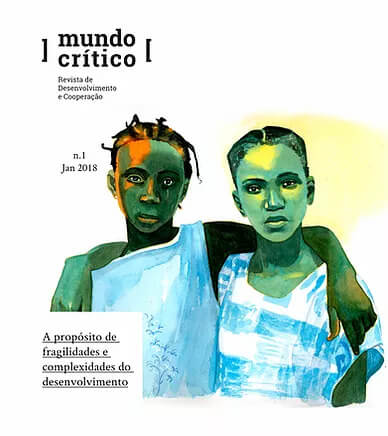
Mundo Crítico n.º 1: A propósito de fragilidades e complexidades do desenvolvimento
Abstract:
In an era of multiple challenges, spanning from the local to the global scale, Mundo Crítico – Journal of Development and Cooperation seeks to address the need for debate among public and private social actors, regardless of their size or geographic and thematic scope, with a critical, persistent, and dialogical commitment. It aims to foster unlikely dialogues between text and image, between art and science, between academics, artists, and practitioners, and among Portuguese-speaking individuals from diverse geographical and cultural spaces. The debate aspires to be comprehensive, with a particular focus on the ongoing social, economic, and political transformations shaping the world we inhabit.
The guiding principle of this platform is rooted in a vision of development as a multidisciplinary social action and the complementarity of various actors, both individual and collective. It considers cooperation among peoples as one of the pillars upon which a shared vision of human rights, well-being, and progress for humanity—both today and for future generations—can be built. A journal of critical thinking to reflect and act.
Cite this Journal:
ACEP & CEsA (2018). “A propósito de fragilidades e complexidades do desenvolvimento”. ISEG/CEsA – Centro de Estudos sobre África e Desenvolvimento. Revista Mundo Crítico nº 1 (Jan 2018). ISSN 2184-1926.
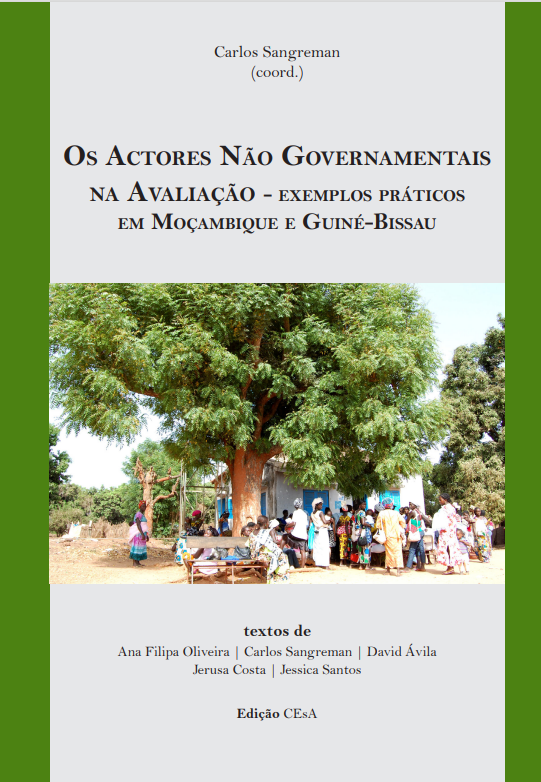
Os Actores Não Governamentais na Avaliação: Exemplos práticos em Moçambique e Guiné-Bissau
Abstract:
This work was conceived with a specific approach: the evaluation of the projects was conducted first, and only after its completion was the idea of publishing a small book on the evaluations considered. Since there was no coordination or dialogue between the “logic of theorization” and the “logic of practice” in the evaluation process intended for the evaluators (something that would undoubtedly have been interesting if done prior to the project evaluations), it was not feasible for the publication to revise certain aspects of the evaluations to systematically incorporate the international debate on the methodologies employed.
The book begins with an introductory section featuring a first chapter by Ana Filipa Oliveira, who provides a historical overview of ideas on evaluation and its institutionalization by various cooperation funders. In the second chapter, Jessica Santos analyses foundations as actors in the field of cooperation, drawing on her master’s research.
The second part contains a chapter by David Ávila, evaluating the “Tree of Hope” project in Maputo Province, specifically in the town of Namaacha in the area of agricultural production, which includes a significant research component, as well as the “Point by Point with Health” project in Inhambane. Jerusa Costa authors the following chapter, where she evaluates a set of projects supported by the Calouste Gulbenkian Foundation in the area of health in Guinea-Bissau. This chapter concludes with a response from ACEP to Jerusa Santos’s evaluation of the project “Women and Development: Self-employment and Self-confidence.”
Finally, Carlos Sangreman writes the conclusions and recommendations, proposing the effective institutionalisation of evaluation in the context of non-governmental cooperation through the implementation of a pilot certification project.
Cite this book:
Sangreman, Carlos (Coordenação) .(2014). Os actores não governamentais na avaliação : exemplos práticos em Moçambique e Guiné-Bissau. Edição CEsA. Apoio Fundação Calouste Gulbenkian. 2014
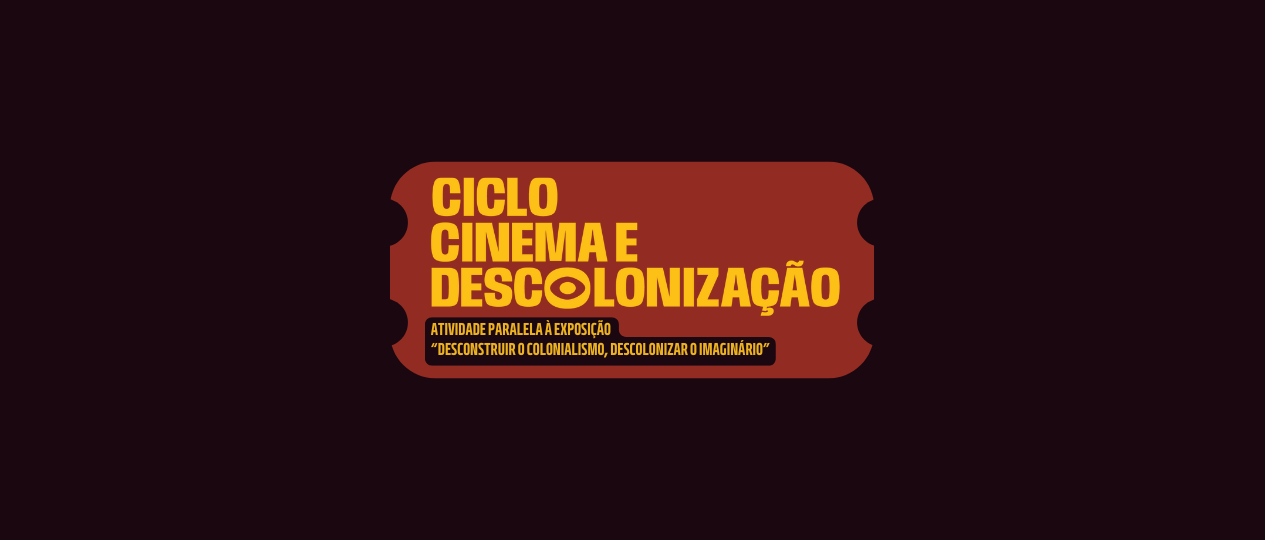
Programme for the 2024/2025 season of the Cinema and Decolonisation Cycle, in parallel with the exhibition ‘Deconstructing Colonialism, Decolonizing the Imagination’

The Cinema and Decolonisation Cycle returns with a new 2024/2025 season, featuring monthly film club-style sessions aimed at exploring the legacies and memories of decolonisation. This initiative runs parallel to the exhibition Deconstructing Colonialism, Decolonising the Imagination, on display at the National Museum of Ethnology until November 2, 2025.
The sessions will take place from November 2024 to June 2025, always on Saturdays at 10 a.m. Most screenings will be held in Auditorium 2 at ISEG – Lisbon School of Economics and Management/ULisboa (Rua do Quelhas nº 6, 1200-781, Lisbon), with a single screening scheduled for April 5, 2025, at the National Museum of Ethnology Auditorium (Avenida da Ilha da Madeira, 1400-203 Lisbon). Each screening will feature the participation of artists involved in the films’ production, along with researchers and moderators selected by CEsA.
About the Cinema and Decolonisation Cycle
Decolonisation must be understood as an ongoing process, one that needs to be embraced and integrated into social, political, cultural, and personal dynamics. The project aims to create an open, dynamic space for sharing memories, narratives, dialogues, and reflections. It is coordinated by researcher Jessica Falconi (CEsA/CSG/ISEG-ULisboa) and curated by researcher and filmmaker Isabel Noronha (CEsA/CSG/ISEG-ULisboa) and filmmaker Camilo de Sousa.
Coordination: Jessica Falconi (CEsA/CSG/ISEG-ULisboa)
Curation: Isabel Noronha (CEsA/CSG/ISEG-ULisboa) and filmmaker Camilo de Sousa
Scientific Consulting: Isabel Castro Henriques (CEsA/CSG/ISEG/ULisboa), Joana Pereira Leite (CEsA/CSG/ISEG/ULisboa), and Ana Mafalda Leite (CEsA/CSG/ISEG/ULisboa)
Collaboration: Luca Fazzini and João Moreira Silva
Support: CEsA/CSG/ISEG/ULisboa
Read more:
Author: CEsA Communication Team (comunicacao@cesa.iseg.ulisboa.pt)
Image: Reproduction
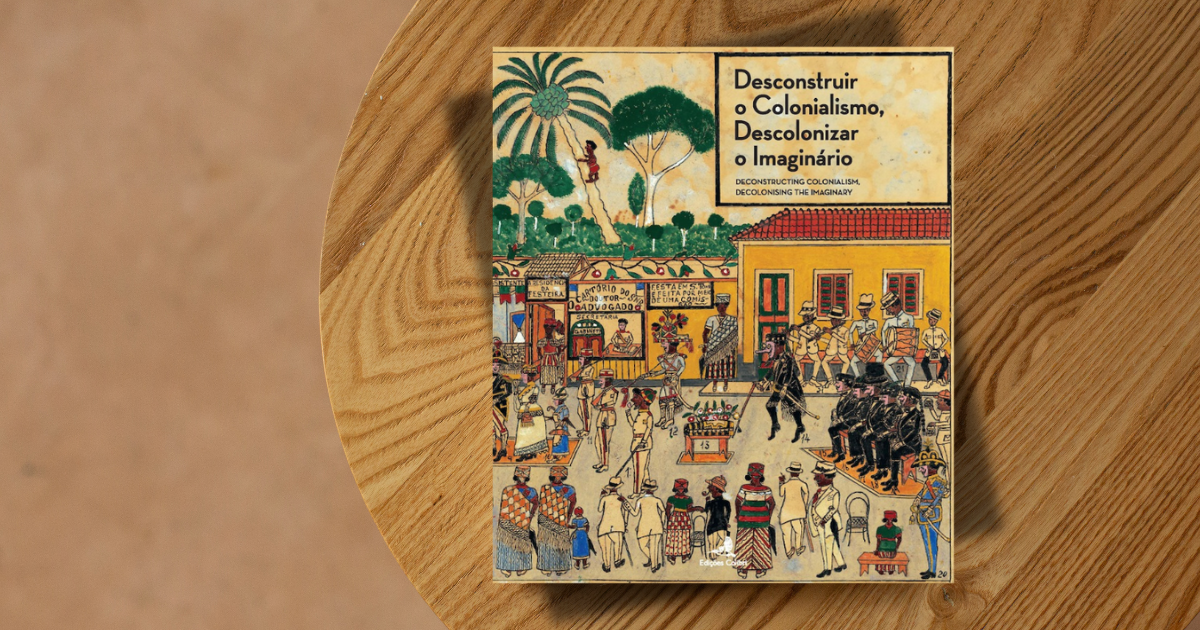
Edições Colibri launches book accompanying the Exhibition ‘Deconstructing Colonialism, Decolonising the Imagination’ at the National Museum of Ethnology

The Exhibition Deconstructing Colonialism, Decolonising the Imagination. Portuguese Colonialism in Africa: Myths and Realities, open to the public until November 2, 2025, at the National Museum of Ethnology, is accompanied by the publication of a book with the same title. Published by Edições Colibri, the 344-page book features contributions from around 30 researchers who delve into the various themes explored in the project.
Deconstructing Colonialism, Decolonising the Imagination. Portuguese Colonialism in Africa: Myths and Realities serves as a guide to the exhibition, which was conceived and coordinated by historian Isabel Castro Henriques. The project aims to present key aspects of Portuguese colonialism in Africa during the 19th and 20th centuries. Its objectives are to dismantle the myths created by colonial ideology, decolonize Portuguese imaginations, and contribute—through an accessible and educational approach—to a renewed understanding of Portuguese colonialism.
Author: CEsA Communication Team (comunicacao@cesa.iseg.ulisboa.pt) with information from the Communication Teams of the National Museum of Ethnology and Edições Colibri
Image: Reproduction
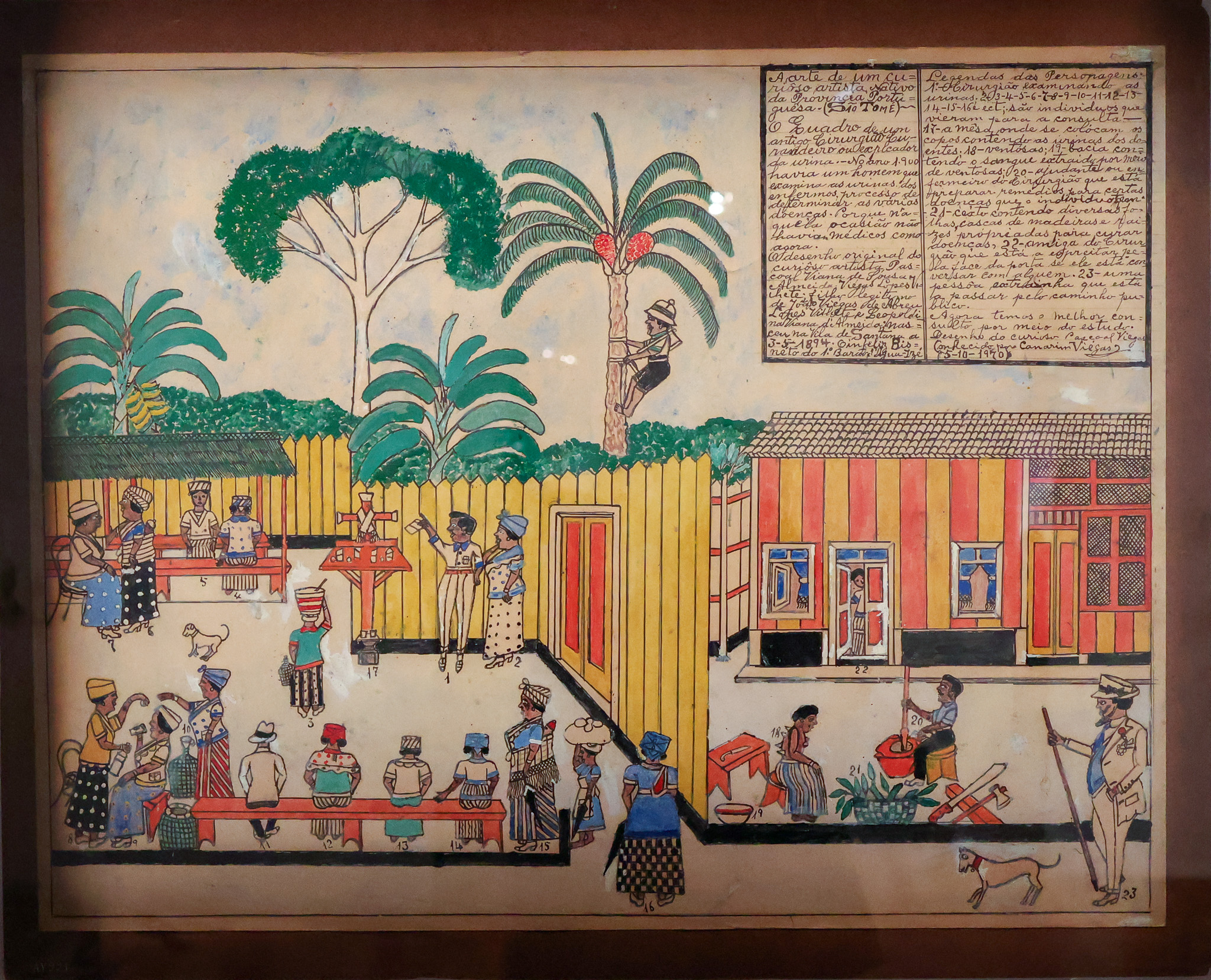
CEsA researcher opens exhibition ‘Deconstructing Colonialism, Decolonising the Imaginary. Portuguese Colonialism in Africa: Myths and Realities’

On October 29, 2024, Professor Isabel Castro Henriques, historian and CEsA researcher (CSG/ISEG-ULisboa, Portugal), inaugurated the exhibition Deconstructing Colonialism, Decolonizing the Imaginary. Portuguese Colonialism in Africa: Myths and Realities. The exhibition, on display at the largest temporary exhibition hall of the National Museum of Ethnology (Avenida da Ilha da Madeira, 1400-203 Lisbon), will run until November 2, 2025.
This project, conceived and coordinated by Professor Castro Henriques, commemorates the 50th anniversary of the Portuguese Revolution of April 25, 1974. It emphasises the importance of revisiting, reflecting upen, and understanding the history of Portuguese colonialism in Africa during the 19th and 20th centuries to foster a more inclusive future. It is co-organised by CEsA – Center for African and Development Studies and the National Museum of Ethnology, with the support of the 50 Years of the 25th of April Commemorative Commission.

At the invitation of Professor Castro Henriques, the opening ceremony featured contributions from Eduardo Moraes Sarmento (Director of CEsA, CSG/ISEG-ULisboa), Paulo Ferreira da Costa (Director of the National Museum of Ethnology/Museum of Popular Art), Alexandre Pais (President of Portugal Museums and Monuments – EPE), and Maria de Lourdes Craveiro (Secretary of State for Culture). In his address, Sarmento evoked the poem Urgentemente by Eugénio de Andrade to underscore the values of freedom, culture, and memory as pillars of individual and collective experiences in building a more just and equitable society.
“Valuing culture, traditions, and memory can help overcome social inequalities and promote intercultural dialogue. Our community must play its part in preserving what we cannot afford to forget as a society. Only by learning from the lessons of the past can we avoid perpetuating them and reconcile with history,” said Sarmento at the exhibition’s opening.
Exhibition Structure
The exhibition is structured around two main themes:
- The Power of Historical Narrative – This section draws on the research of approximately 30 scholars and incorporates iconographic documentation provided by Portuguese and international institutions. It combines text and imagery to give historical knowledge a compelling voice.
- The Voices of African Cultures – Featuring 139 artworks, this section presents tangible evidence of African thought and cultures, challenging stereotypes rooted in colonial ideology. Highlights include pieces from the National Museum of Ethnology’s collections, items on loan from the Calouste Gulbenkian Foundation, and works from private collections belonging to Francisco Capelo, Lívio de Morais, Hilaire Balu Kuyangiko, and Mónica de Miranda.
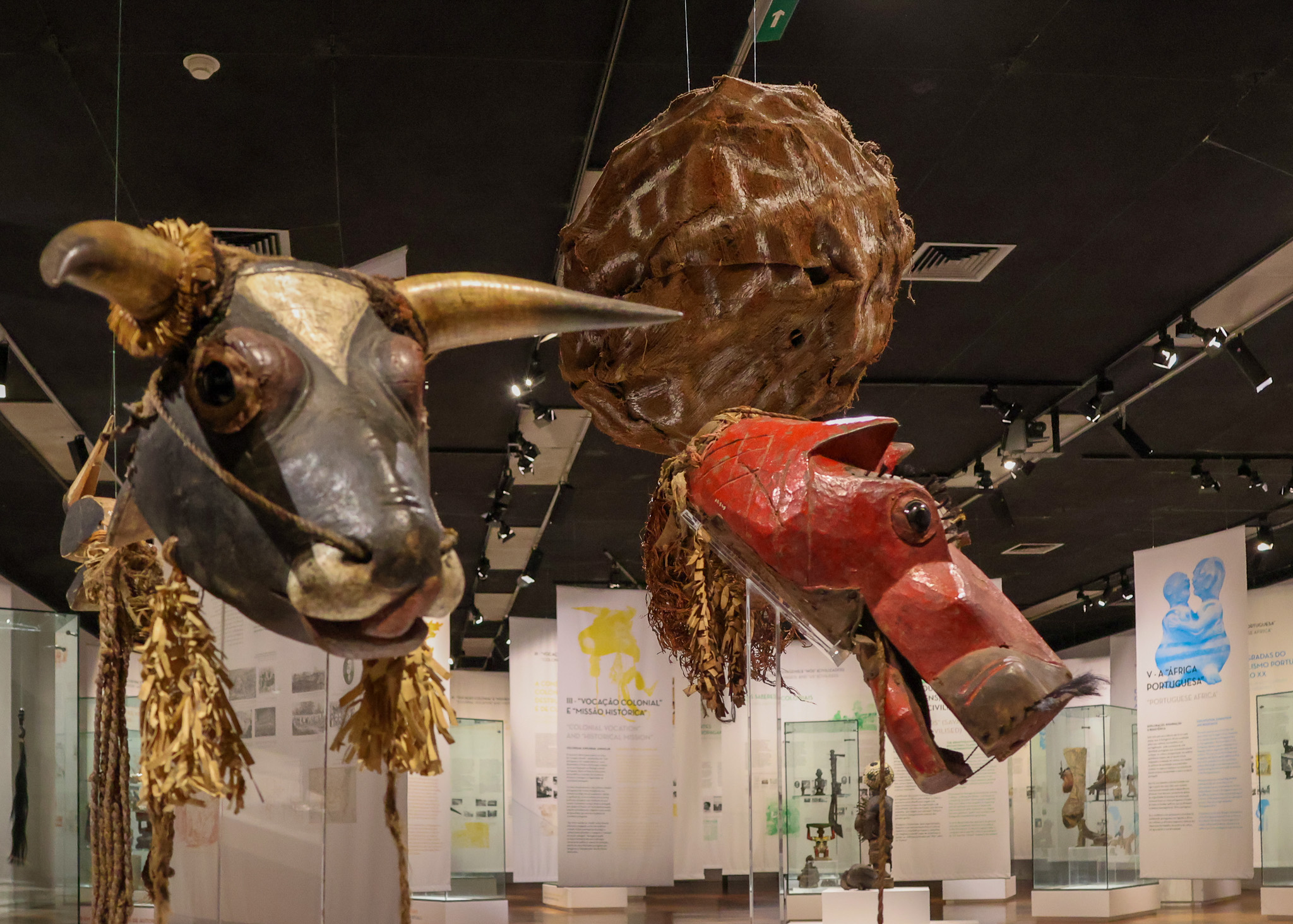
The exhibition’s Executive Committee, chaired by Isabel Castro Henriques, includes Inocência Mata, Joana Pereira Leite, João Moreira da Silva, Luca Fazzini, and Mariana Castro Henriques. The Scientific Committee, also chaired by Castro Henriques, comprises 20 members, including António Pinto Ribeiro, Aurora Almada Santos, Elsa Peralta, Isabel do Carmo, and José Neves.
Parallel Program
The exhibition is accompanied by an extensive parallel program, which includes:
- A Cinema and Decolonisation Cycle, with screenings at ISEG and the National Museum of Ethnology;
- An Itinerant Exhibition, to be displayed in schools and cultural centers across Portugal and in Portuguese-speaking regions in Africa and Brazil,
- A Series of Talks, titled Deconstructing Racism, Decolonising the Museum, Rethinking Knowledge, hosted at the National Museum of Ethnology, alongside scientific conferences and colloquia, exploring themes related to the exhibition;
- A complementary publication, Deconstructing Colonialism, Decolonizing the Imaginary, has been released by Colibri Editions. In its 344 pages, approximately 30 contributing researchers delve into the various topics covered in the exhibition.
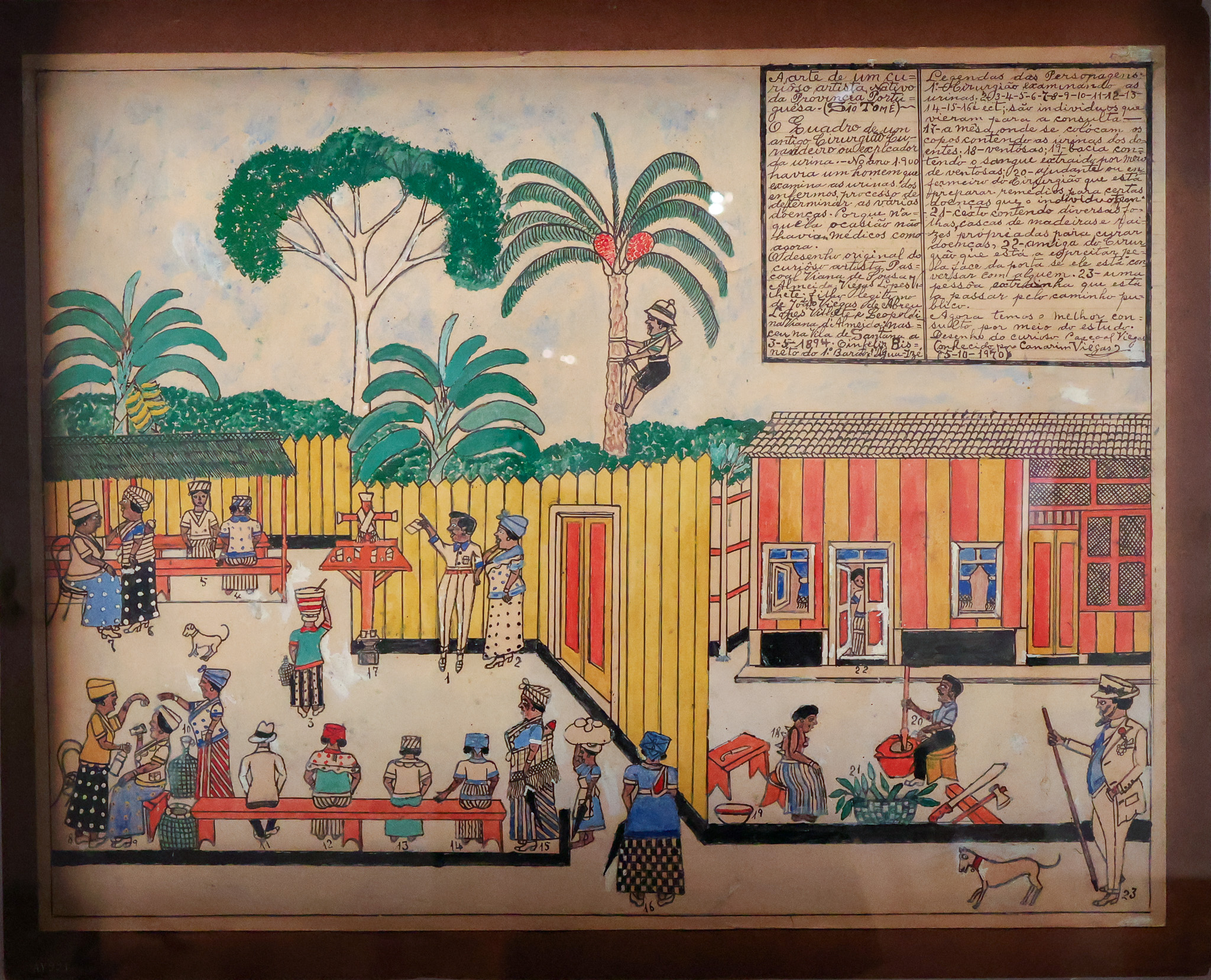
For more details:
Exhibition ‘Deconstructing colonialism, Decolonising the imagination’ on display at the National Museum of Ethnology until November 2, 2025
Exhibition ‘Deconstructing colonialism, Decolonising the imagination’ [National Museum of Ethnology’s website]
Exhibition ‘Deconstructing colonialism, Decolonising the imagination’ [50 Years of the 25th of April Commemorative Commission’s website, only in Portuguese]
Cinema and Decolonisation Cycle to screen films as part of the exhibition ‘Deconstructing Colonialism, Decolonising the Imagination;’ Opening session on November 9 at ISEG
Exhibition on colonialism at the National Museum of Ethnology [ISEG’s website]
Desconstructing Colonialism, Descolonising Imaginary [Edições Colibri’s website]
Author: CEsA Communications (comunicacao@cesa.iseg.ulisboa.pt) with information from the Communications of the National Museum of Ethnoloy
Image: Iria Simões
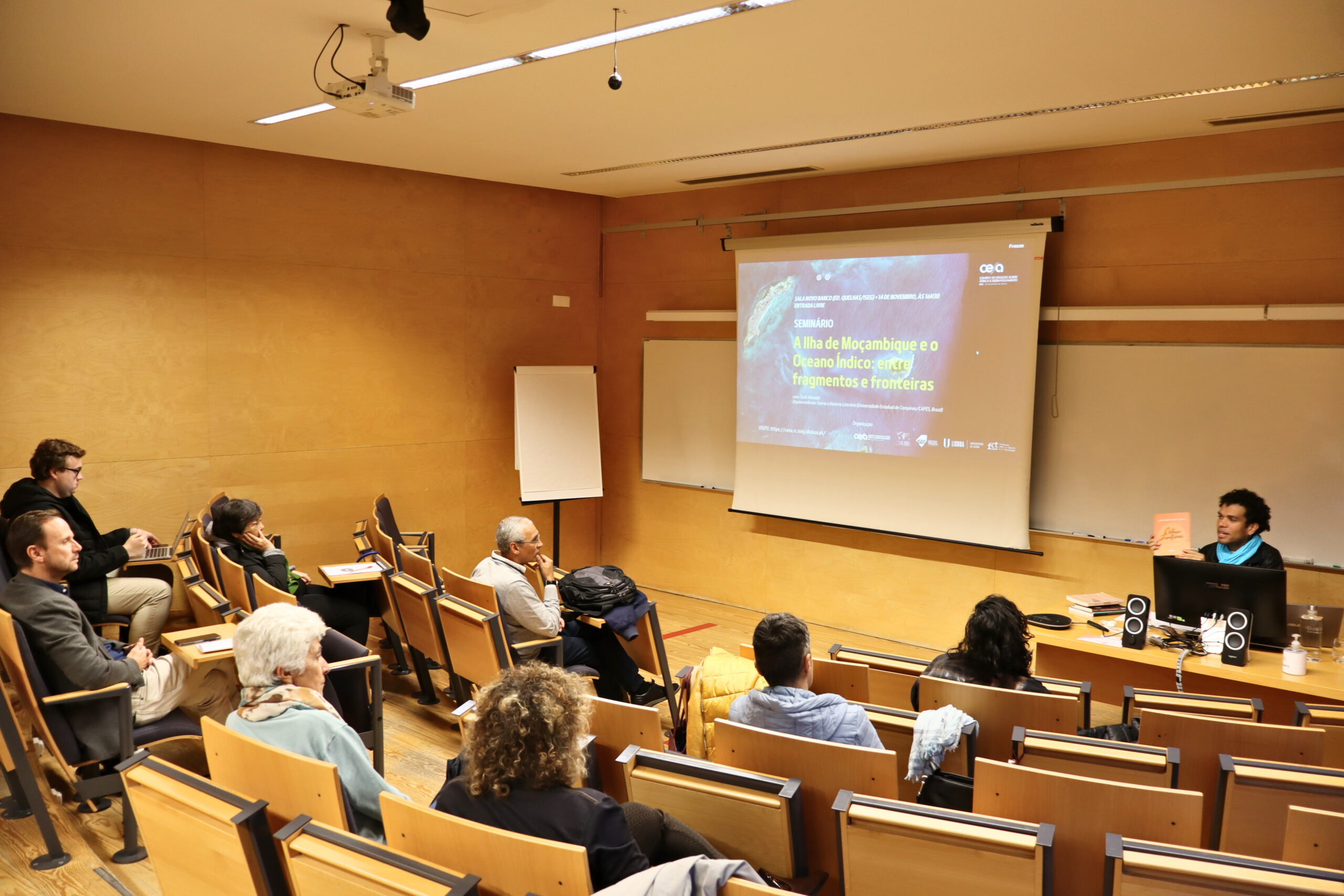
Recording of the Seminar “The Island of Mozambique and the Indian Ocean: Between fragments and borders” now available on CEsA’s YouTube channel
The seminar The Island of Mozambique and the Indian Ocean: Between fragments and borders took place on November 14, 2024 at 4:30 PM in the Novo Banco Room of ISEG. It was presented by Tarik Almeida, a PhD candidate in Literary Theory and History at the Institute of Language Studies – Unicamp (IEL/Unicamp – CAPES/Brazil). The lecture was recorded and is now available on CEsA’s YouTube channel. This session was part of Almeida’s research internship at CEsA – Centre for African and Development Studies, under the supervision of research fellow Jessica Falconi, and supported by the CAPES International PhD Exchange Programme (PDSE/CAPES).

The Island of Mozambique was presented as a paradigmatic site due to its geography, topography, and historiography, sparking some rich and innovative reflections:
- An African trading post of historical importance for Portuguese colonialism on Africa’s eastern coast;
- An identity and paradigmatic fragment of the Nation, deconstructing the idea of a single national identity;
- A space defined by fluid, humid, and maritime landscapes, intertwining the human and the non-human.
Through the lens of ecocriticism, Almeida explored the Indian Ocean not only as a border zone and a transnational space but also as a critical analytical framework, promoting an oceanic perspective that transcends national boundaries. The researcher also examined poetic works by Rui Knopfli, Luís Carlos Patraquim, Ana Mafalda Leite, and Sangare Okapi, which inspired reflections on the Indian Ocean as a poetic network and a cartography of reclaimed spaces.
Watch the recording (only in Portuguese)
Read more:
Seminar ‘The Island of Mozambique and the Indian Ocean: between fragments and borders’ on November 14, 4:30 p.m., at ISEG
The Island of Mozambique and the Indian Ocean: Between fragments and borders (Recording on YouTube)
Related Seminar: Between Commentary and Activism: The Ecocritical Perspective in African Literature (Recording on YouTube)
Image: CEsA/Reproduction
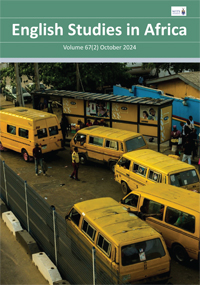
Mobility and Public Transport in Post-independence Mozambican Fiction (1992-2022)
Abstract:
This article analyzes representations of mobility and public transport in the following Mozambican novels: Terra Sonâmbula [Sleepwalking Land] (1992), O Outro Pé da Sereia [The Mermaid’s Other Foot] (2006) by Mia Couto, O Comboio de Sal e Açúcar [The Train of Salt and Sugar] (1999) by Licínio Azevedo, and Museu da Revolução [Museum of the Revolution] (2022) by João Paulo Borges Coelho. Despite the importance of mobility and public transport in these works, existing scholarship has not considered these themes but has opted for more traditional categories such as ‘travel’, ‘diaspora’, and ‘migration’. Focusing on the literary portrayals of public transport and infrastructure of mobility – i.e. buses, ships, and railway stations (Couto), a slow-moving train (Azevedo), and a Toyota Hiace car (Borges Coelho) – this article aims to demonstrate the central role that the mobility/immobility binomial plays in the representation of post-independent Mozambique. The main argument of this article is that the images of the railway, the road, automobility, and maritime travel are the literal driving force of the narratives and contribute to the (un)building of the national space. I use literary perspectives on mobility studies and world-system approaches developed within the framework of world-literature (Warwick Research Collective) to demonstrate that the tropes of mobility and the representations of public transport in the four novels register and encode the social, political, and economic transitions in Mozambique’s colonial and post-colonial history and its incorporation into the capitalist world-system.
Cite this article:
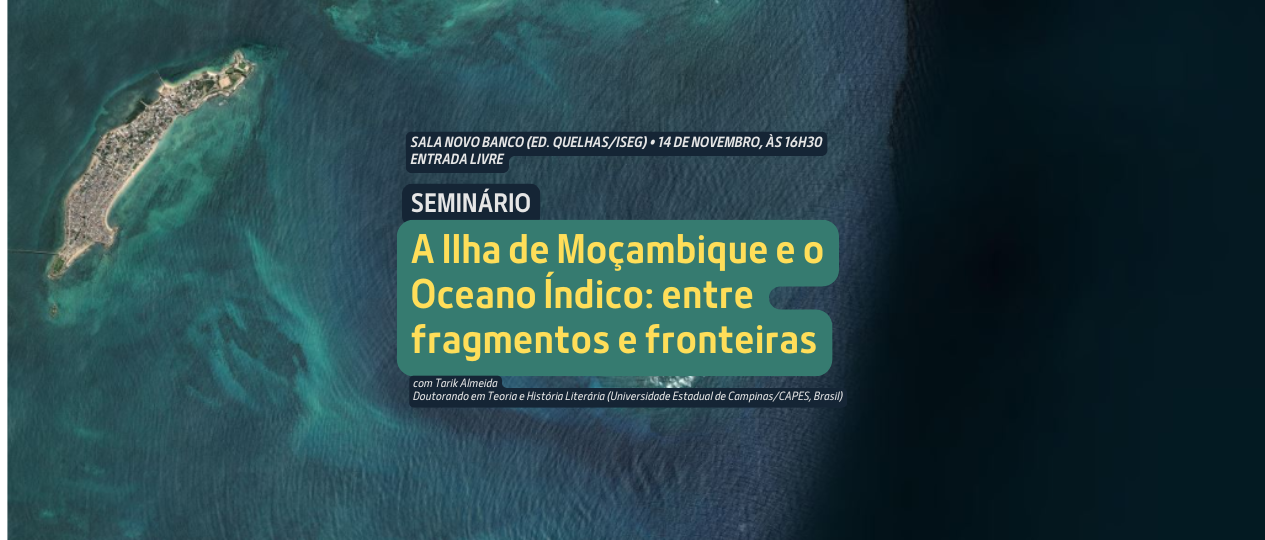
Seminar ‘The Island of Mozambique and the Indian Ocean: between fragments and borders’ on November 14, 4:30 p.m., at ISEG
CEsA – Centre for African and Development Studies invites you to the Seminar The Island of Mozambique and the Indian Ocean: Between fragments and borders, which will take place on November 14 at 4:30 p.m. in the Novo Banco Room – ISEG (Rua do Quelhas 6, Quelhas Building, 4th Floor), with free admission.
The seminar will be presented by Tarik Almeida, a PhD candidate in Literary Theory and History at the Institute of Language Studies at the University of Campinas (IEL/Unicamp – CAPES/Brazil). Since September, the researcher has been undertaking an internship hosted by CEsA, under the supervision of researcher Jessica Falconi.
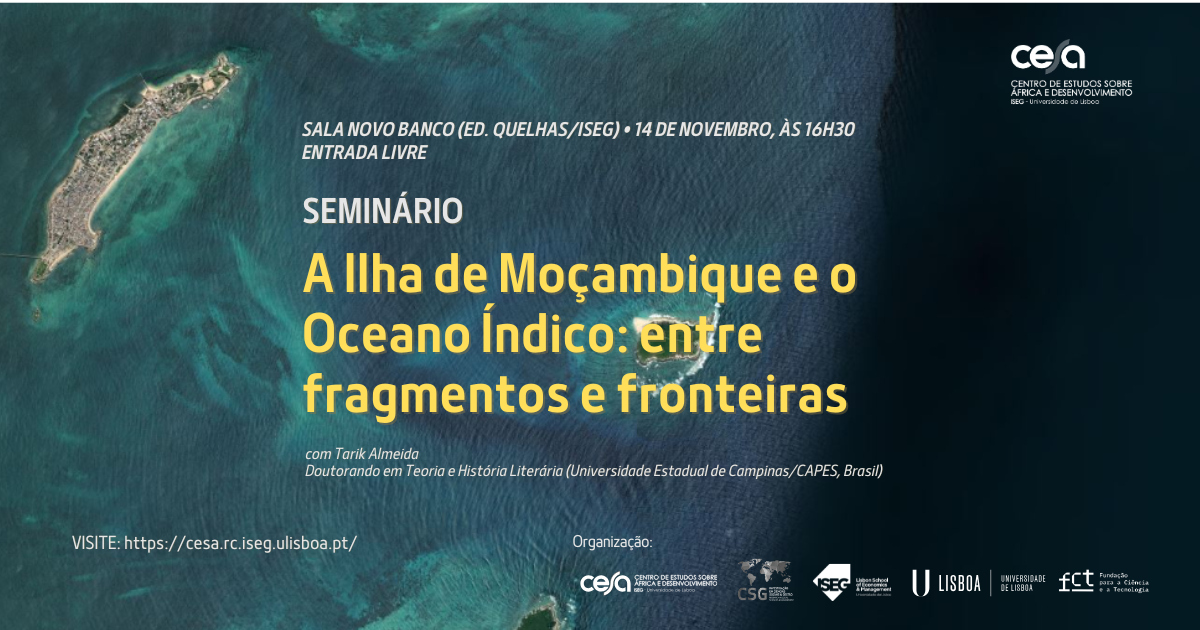
About ‘The Island of Mozambique and the Indian Ocean: Between fragments and borders’
- In what ways can Mozambique Island and the Indian Ocean be studied as “aesthetic and conceptual” frameworks for African Literatures?
- How might the genealogical position of Mozambique Island and the Indian Ocean influence the construction of poetic and cultural identities in Mozambique and, more broadly, in African literature?
- What challenges and opportunities arise in contemporary literary criticism of African Literatures with the incorporation of ecocritical perspectives?
This seminar aims to interrogate or revisit two key frameworks for a systematic study of Mozambican poetry, particularly its Indian Ocean influence: the Island of Mozambique and the Indian Ocean itself. To this end, we seek to reflect on the relationship between fragment(s) and border(s) to explore: 1) certain historical and historiographic issues related to the Island of Mozambique and the Indian Ocean; 2) the potential genealogical position of the Island and the Indian Ocean as “aesthetic and conceptual” (Brugioni, 2021) frameworks for the study of African Literatures; 3) the role of literary criticism of African Literatures in the Contemporary era, particularly within the scope of ecocriticism. In this way, the relationship between border and fragment acquires a methodological and conceptual view and will be approached as units of analysis for (re)considering the Island of Mozambique and the Indian Ocean, and their ecological, historical, and cultural borders. The corpus selected for this seminar is primarily Mozambican poetry, with a focus on the poetic works of authors such as Luís Carlos Patraquim, Ana Mafalda Leite, and Sangare Okapi, seeking at the same time to situate them within Mozambican frames of correspondence, in their networks of intertext.
About Tarik Almeida
 Researcher in the field of Literary Theory and Comparative Literature. Almeida holds a degree in Portuguese Language and Corresponding Literatures and a master’s degree in Literary Studies from the State University of Maringá (Brazil). He is currently a PhD candidate in Literary Theory and History at the Institute of Language Studies of the State University of Campinas (Brazil). Since September, he has been undertaking an internship hosted by CEsA, under the supervision of researcher Jessica Falconi and within the framework of the Doctoral Sandwich Program Abroad (PDSE/CAPES).
Researcher in the field of Literary Theory and Comparative Literature. Almeida holds a degree in Portuguese Language and Corresponding Literatures and a master’s degree in Literary Studies from the State University of Maringá (Brazil). He is currently a PhD candidate in Literary Theory and History at the Institute of Language Studies of the State University of Campinas (Brazil). Since September, he has been undertaking an internship hosted by CEsA, under the supervision of researcher Jessica Falconi and within the framework of the Doctoral Sandwich Program Abroad (PDSE/CAPES).
Read more:
Author: CEsA Communication (comunicacao@cesa.iseg.ulisboa.pt)
Image: CEsA/Reproduction

Cinema and Decolonisation Cycle to screen films as part of the exhibition ‘Deconstructing Colonialism, Decolonising the Imagination;’ Opening session on November 9 at ISEG

The Cinema and Decolonisation Cycle returns with a new 2024/2025 season, featuring monthly film-club screenings to explore the legacies and memories of decolonisation. This initiative runs in parallel with the exhibition Deconstructing Colonialism, Decolonising the Imagination, currently on view at the National Museum of Ethnology (Lisbon).
The first screening, scheduled for November 9 at 10 a.m. in Auditorium 2 at ISEG (Rua do Quelhas 6, Quelhas Building, 2nd Floor), will show the film Independência (Fradique, 2016, Angola, 105 min). The film presents memories of Angola’s colonial period, revealing the initial steps of the liberation struggle and revisiting some of its main settings. A post-film discussion will feature Ana Paula Tavares, poet, professor, and historian.
The sessions will take place from November 2024 to June 2025, with screenings in ISEG’s Auditorium 2. Each screening will include participation from artists involved in the films, as well as researchers and moderators appointed by CEsA.
About Independência
On 11th of November 1975, Angola proclaimed its independence, 14 years after the start of the armed struggle against Portuguese colonial rule. Salazar’s regime refused any negotiation with those who were pro-independence. They were left with few choices: secrecy, imprisonment, or exile. When almost of all Africa was celebrating the end of colonial empires, Angola and the other Portuguese colonies were suffering a rather different fate. Only after the military coup on 25th of April 1974, when the regime was overthrown, did Portugal recognise the right of its colonies to self-determination.
The years of struggle evoked in Independência determined the course that Angola would take after 1975. Political options, internal conflicts, international alliances, began to emerge during the anti-colonial struggle. The main organisations (FNLA and MPLA, and later UNITA) never formed a common front and their contradictions were further magnified by the Cold War context. Independence was proclaimed in a climate of war, but with great emotion and pride, and is depicted in the film.
Production: Associação Tchiweka de Documentação and Geração 80
Director: Mário Bastos (Fradique)
Producers: Paulo Lara and Jorge Cohen
Historical Consultant: Conceição Neto
Research: Conceição Neto, Paulo Lara, and Mário Bastos (Fradique)
Script: Mário Bastos (Fradique), Conceição Neto, and Paulo Lara
Director of Photography: Kamy Lara
Editing: Charles Alexander, Kamy Lara, and Zeno Monyak
Music: Victor Gama
Narrator: Kalaf Epalanga
Voice of Deolinda Rodrigues: Elizângela Rita
About the Cinema and Decolonisation Cycle
Decolonisation must be understood as an ongoing process, one that needs to be embraced and integrated into social, political, cultural, and personal dynamics. The project aims to create an open, dynamic space for sharing memories, narratives, dialogues, and reflections. It is coordinated by researcher Jessica Falconi (CEsA/CSG/ISEG/ULisboa) and curated by researcher and filmmaker Isabel Noronha (CEsA/CSG/ISEG/ULisboa) and filmmaker Camilo de Sousa.
Coordination: Jessica Falconi (CEsA/CSG/ISEG/ULisboa)
Curation: Isabel Noronha (CEsA/CSG/ISEG/ULisboa) and Camilo de Sousa
Scientific Consulting: Isabel Castro Henriques (CEsA/CSG/ISEG/ULisboa), Joana Pereira Leite (CEsA/CSG/ISEG/ULisboa), and Ana Mafalda Leite (CEsA/CSG/ISEG/ULisboa)
Collaboration: Luca Fazzini and João Moreira Silva
Support: CEsA/CSG/ISEG/ULisboa
Read more:
Independência – Tchiweka Documentation Association Website
Exhibition ‘Deconstructing colonialism, Decolonising the imagination’ on display at the National Museum of Ethnology until November 2, 2025
Author: CEsA Communication (comunicacao@cesa.iseg.ulisboa.pt) with information from Tchiweka Documentation Association
Image: CEsA/Reproduction

Exhibition ‘Deconstructing colonialism, Decolonising the imagination’ on display at the National Museum of Ethnology until November 2, 2025
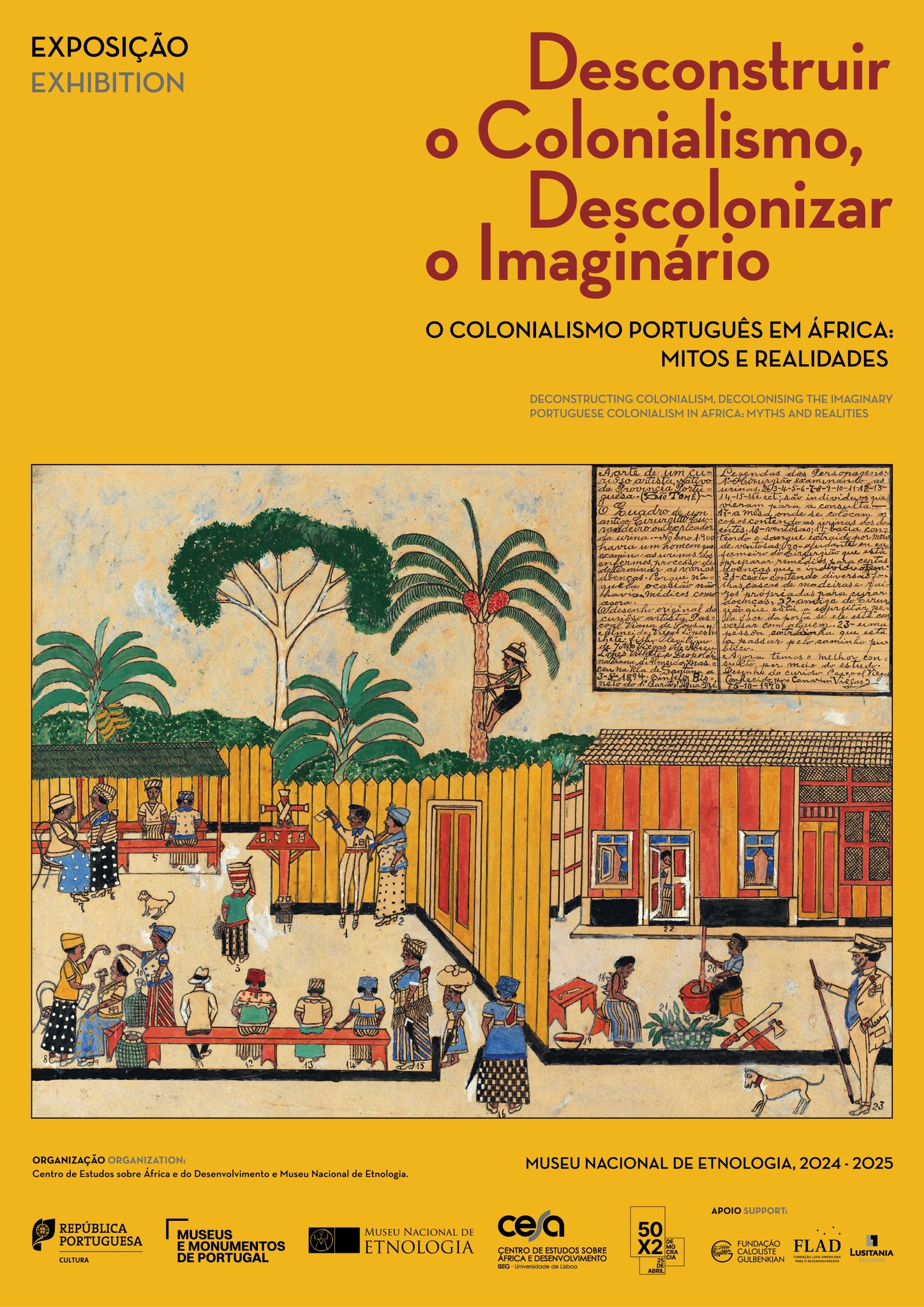
The CEsA – Centre for African and Development Studies and the National Museum of Ethnology in Lisbon invite you to a profound reflection and deconstruction of the myths surrounding Portuguese colonialism in Africa during the 19th and 20th centuries. This initiative aims to renew knowledge on the colonial question through a visit to the exhibition Deconstructing Colonialism, Decolonising the Imagination. Portuguese Colonialism in Africa: Myths and Realities, inaugurated on October 29, 2024, and open to the public until November 2, 2025, in the largest temporary exhibition hall of the National Museum of Ethnology (Avenida da Ilha da Madeira, 1400-203 Lisbon).
The project was conceived and coordinated by CEsA researcher and historian Isabel Castro Henriques to commemorate the 50th anniversary of the 25th of April, emphasising the importance of understanding the past to build a more inclusive future. It is co-organised by CEsA and the National Museum of Ethnology, with the support of the 50 Years of the 25th of April Commemorative Commission.
The exhibition is structured around two central themes:
- The power of historical narrative, which draws on research conducted by approximately 30 researchers and contributions from iconographic materials provided by Portuguese and foreign institutions. It combines text and imagery to give voice to historical knowledge.
- The voices of African cultures, presented through 139 works of art that showcase the material evidence of African thought and cultures, challenging the stereotypes perpetuated by colonial ideology. This second theme includes a selection of pieces from the National Museum of Ethnology’s collections, items on loan from the Calouste Gulbenkian Foundation, and collections by Francisco Capelo, Lívio de Morais, Hilaire Balu Kuyangiko, and Mónica de Miranda.
The Executive Committee of the exhibition is chaired by Isabel Castro Henriques and includes Inocência Mata, Joana Pereira Leite, João Moreira da Silva, Luca Fazzini, and Mariana Castro Henriques. Its Scientific Committee, also chaired by Isabel Castro Henriques, comprises 20 members, including António Pinto Ribeiro, Aurora Almada Santos, Elsa Peralta, Isabel do Carmo, and José Neves.
Parallel Programme
The exhibition is accompanied by an extensive parallel programme, including:
- A Cinema and Decolonisation Cycle, with screenings at the ISEG and the National Museum of Ethnology;
- A travelling exhibition to schools and cultural centres in Portugal, as well as Portuguese-speaking regions in Africa and Brazil;
- A series of talks at the National Museum of Ethnology under the title Deconstructing Racism, Decolonising the Museum, Rethinking Knowledge, alongside scientific conferences and colloquia.
The exhibition is complemented by a book of the same name, published by Edições Colibri. In its 344 pages, the approximately 30 researchers involved in this project delve into the various themes addressed.
Read more:
Exhibition on colonialism at the National Museum of Ethnology (ISEG website)
Deconstructing Colonialism, Decolonising Imaginary (Edições Colibri website)
Author: CEsA Communication (comunicacao@cesa.iseg.ulisboa.pt) with information from the Communications team of the National Museum of Ethnology
Image: CEsA/Reproduction





